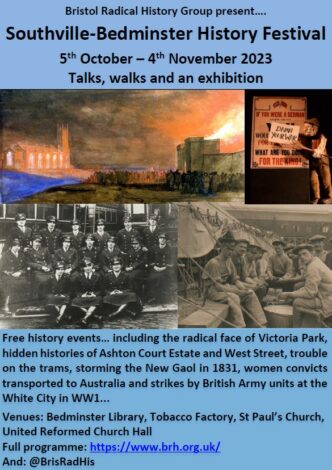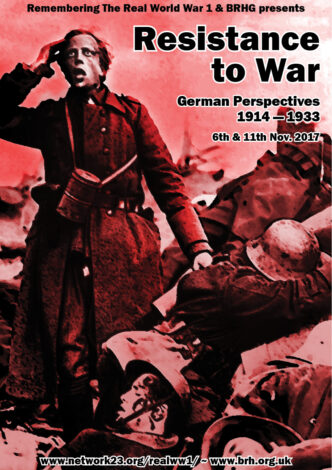Chris Bowkett’s talk focuses on the untold history of Stapleton Prison, the home of captured soldiers and sailors during the French Revolutionary and Napoleonic wars. Using stories of the prisoners themselves, this talk reveals the surprising amount of freedom offered to Britain’s “enemies” whilst in captivity, contrasted with their biggest problem: boredom. This talk covers both the inventive and self-destructive ways “the miserables” occupied their time at His Majesty’s pleasure.
This talk considers, from a Bristol perspective, the huge wave of strikes involving tens, if not hundreds of thousands of personnel in the British Armed forces at the end of World War One. Mass insubordination, refusals and in some cases mutiny swept through army, navy and air force personnel in January 1919. Driven by the desire for immediate demobilisation and fears that politicians and military leaders might commit them to the ongoing invasion of revolutionary Russia and other colonial […]
The German revolution of 1918-20 and its violent suppression is a little known event in the British popular memory. Where it is described the narrative typically commences with the mutiny of sailors from the German High Seas fleet over the first few days of November 1918. However, the numerous actions against the continuation of the war by hundreds of thousands of German soldiers on the western front during the preceding summer, have only been recently exposed by the work of historian Nick […]


